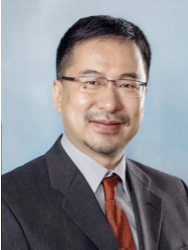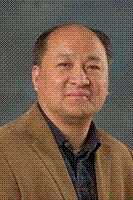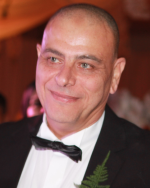
Prof. Shiwen Mao
Auburn University
Biography: SHIWEN MAO is a professor and Earle C. Williams Eminent Scholar Chair, and Director of the Wireless Engineering Research and Education Center (WEREC) at Auburn University. His research interest includes wireless networks, multimedia communications, and smart grid. He is a Distinguished Lecturer of IEEE Communications Society and the IEEE Council of RFID, and is on the Editorial Board of IEEE TWC, IEEE TNSE, IEEE TMC, IEEE IoT, IEEE TCCN, IEEE OJ-ComSoc, IEEE/CIC China Communications, IEEE Multimedia, IEEE Network, IEEE Networking Letters, and ACM GetMobile. He received the IEEE ComSoc TC-CSR Distinguished Technical Achievement Award in 2019 and NSF CAREER Award in 2010. He is a co-recipient of the 2021 Best Paper Award of Elsevier/KeAi Digital Communications and Networks Journal, the 2021 IEEE Communications Society Outstanding Paper Award, the IEEE Vehicular Technology Society 2020 Jack Neubauer Memorial Award, the 2004 IEEE Communications Society Leonard G. Abraham Prize in the Field of Communications Systems, and several conference best paper awards. He is a Fellow of the IEEE.
Talk Title: On Pre-trained Models for Non-intrusive Load Monitoring
Abstract: Non-intrusive load monitoring (NILM) is to estimate individual appliance's power consumption from aggregated smart meter data, which is useful for optimized energy management and provisioning of customized services. While deep learning (DL) has achieved state-of-the-art NILM performance, it is still constrained by the dependency on large amounts of data and intensive computations on training. In this talk, we present a pre-training approach to address the generalization of DL models for NILM. We develop a meta-learning based approach and an ensemble learning based approach, which pre-train a base model and then fine-tune it with few-short learning when applied to an unknown dataset. In the second part of this talk, we present a Middle Window Transformer model, termed Midformer, for NILM. Existing models are limited by high computational complexity, dependency on data, and poor transferability. In Midformer, we first exploit patch-wise embedding to shorten the input length, and then reduce the size of queries in the attention layer by only using global attention on a few selected input locations at the center of the window to capture the global context. The cyclically shifted window technique is used to preserve connection across patches. We also follow the pre-training and fine-tuning paradigm to relieve the dependency on data, reduce the computation in modeling training, and enhance transferability of the model to unknown tasks and domains. The models are validated with two real-world datasets and shown to achieve a superior transferability performance compared with traditional DL and transfer learning methods.

Prof. Hussein T. Mouftah
University of Ottawa
Biography: Hussein T. MOUFTAH received the BSc in Electrical Engineering and MSc in Computer Science from the University of Alexandria, Egypt, in 1969 and 1972, respectively, and the Ph.D. degree in Electrical Engineering from Laval University, Canada, in 1975. He joined the School of Electrical Engineering and Computer Science (was School of Information Technology and Engineering) of the University of Ottawa in 2002 as a Tier 1 Canada Research Chair Professor, where he became a Distinguished University Professor in 2006. He was with the ECE Department, Queen’s University (1979–2002), where he was prior to his departure a Full Professor and the Department Associate Head. He has six years of industrial experience mainly at Bell Northern Research of Ottawa (Nortel Networks). He is the author or coauthor of 13 books, 78 book chapters and more than 1800 technical papers, 17 patents, 5 invention disclosures, and 148 industrial reports. Dr. Mouftah served as the Editor-in-Chief of the IEEE Communications Magazine (1995–1997) and IEEE ComSoc Director of Magazines (1998–1999), Chair of the Awards Committee (2002–2003), Director of Education (2006–2007), and a Member of the Board of Governors (1997–1999 and 2006–2007). He was a Distinguished Speaker of the IEEE Communications Society (2000–2007). He is a Fellow of the IEEE (1990), the Canadian Academy of Engineering (2003), the Engineering Institute of Canada (2005), and the Royal Society of Canada RSC Academy of Science (2008). He is the joint holder of 26 Best/Outstanding Paper Awards. He has received numerous prestigious awards, such as the 2017 Gotlieb Medal in Computer Engineering and Science, the 2016 R.A. Fessenden Medal in Telecommunications Engineering of IEEE Canada, the 2016 Distinguished Technical Achievement Award in Communications Switching and Routing of IEEE ComSoc Communications Switching and Routing Technical Committee, the 2015 IEEE Ottawa Section Outstanding Educator Award, the 2014 Engineering Institute of Canada K. Y. Lo Medal, the 2014 Technical Achievement Award of the IEEE Communications Society Technical Committee on Wireless Ad Hoc and Sensor Networks, the 2007 Royal Society of Canada Thomas W. Eadie Medal, the 2007–2008 University of Ottawa Award for Excellence in Research, the 2008 ORION Leadership Award of Merit, the 2006 IEEE Canada McNaughton Gold Medal, the 2006 EIC Julian Smith Medal, the 2004 IEEE ComSoc Edwin Howard Armstrong Achievement Award, the 2004 George S. Glinski Award for Excellence in Research of the University of Ottawa Faculty of Engineering, the 1989 Engineering Medal for Research and Development of the Association of Professional Engineers of Ontario, and the Ontario Distinguished Researcher Award of the Ontario Innovation Trust.
Talk Title: AI-enabled Connected Autonomous Electric Vehicles in Smart City based Smart Grids
Abstract: The transformation of our current cities into smarter cities will bring challenges in diverse areas such as the transportation system, the electricity system, and wearable systems, just to name a few. In smart cities, Information and Communication Technologies (ICT) will play a vital role for providing services in the urban environment. These services include real time monitoring and reaction in time through wireless sensor and actuator networks. Smart Grids (SGs), Intelligent Transportation Systems (ITS), Internet of Things (IoT), Electric Vehicles (EVs), and Wireless Sensor Networks (WSNs), supported by the advances in Artificial Intelligence (AI) and Machine Learning (ML), will be the building blocks of futuristic smart cities. In this presentation we will address ML techniques with a focus on autonomous vehicles and in particular on Connected and Autonomous Electric Vehicles (CAEVs) in smart cities. Current capabilities as well as limitations and opportunities of key AI enabling technologies will be reviewed, along with a discussion on the impact of such advances on society and the environment. All these technologies will help to build a smart city. A use case on evaluating traffic signs detection using deep convolutional neural networks (CNNs) such as Faster R-CNN for autonomous driving, will be provided.

Prof. Jerry Gao
San Jose State University, San Jose, California, USA
Biography: Dr. Jerry Gao is a professor at San Jose State University. Now, he is the director of SJSU research center on Smart Technology, Computing, and Complex Systems. Since 2020, Dr. Gao has served as the steering committee board chair for IEEE International Congress on Intelligent Service-Oriented Systems Engineering (IEEECISOSE), and Steering Committee Board Members for IEEE Smart World Congress. He had over 24 years of academic research and teaching experience and over 10 years of industry working and management experience on software engineering and IT development applications. He has published three technical books and over hundreds (280) publications in IEEE/ACM journals, magazines, international conferences, and workshops. In last 10 years, Dr. Gao has played as one key organizer for many international conferences and workshop, including IEEEAITest2021, IEEE BigDataService 2020, IEEE Smart World Congress 2017, IEEE Smart City Innovation 2017, SEKE2011, IEEE MobileCloud 2013, and IEEE SOSE2010-2011. His current research areas include cyber-physical systems for smart cities, smart agriculture, wildfire science, intelligent test automation, mobile cloud computing and services. Dr. Gao’s research and publications received lots of citations in the research community, for example, his Google Scholar citation is over 7400+, In 2010, Jerry Gao has been recognized by University of Texas at Arlington as a distinguished Alumna for College of Engineering at its 50th anniversary. In 2011, he was award as a KSI Fellow in SEKE2011. In 2013, Dr. Gao has received the College of Engineering Faculty Award for Excellence in scholarship. Recently, Dr. Gao has been recommended and listed as Marquis’s American Who's Who 2020-2021, and Marquis’s Industry Leaders in 2021.
Talk Title: Real-Time Intelligent Wildfire Platform – Big Data and Machine Learning
Abstract: Wildfires in recent years have destroyed communities, caused server damage to property and human life, and living environment. There were 3,356 fires during the last decade (2009 – 2018), which is 1.4 times greater than the per-decade average number of fires between 1979 and 2009. Total acres burned in the last decade reached 7.08 million acres, which is 1.6 times larger than average per-decade burn area. According to a recent article from The Nature Conservancy, there will be an increasing trend on wildfires in California in the near future. This brings an urgent call for more researchers in studying and developing new machine learning models based on big data to build next-generation intelligent wildfire platforms and systems to support historical and daily wildfire risk analysis, real-time wildfire detection and tracking, and accurate regional wildfire progression forecast and alerting.
This talk will report the current state-of-the-art research work on wildfires using big data and machine learning in wildfire risk analysis and prediction, detection and tracking, as well as progression forecasting. The talk first reviews and reports current existing wildfire research and systems in a comparative way. Next, it covers diverse wildfire big data and preprocessing for current wildfire research including wildfire history records, satellite images, remote sensing data, drone/aerial camera/LiDAR data, as well as weather station and ground fire sensor datasets. Furthermore, the talk will present an on-building intelligent wildfire platform, including big data, wildfire machine learning models and solutions, system infrastructure and components, and evaluation results. Finally, the future wildfire research topics, challenges and needs are discussed and presented.
CSCSG Past Speakers
 |  |
Prof.Farhad Shahni Discipline of Engineering and Energy Murdoch University, Australia 澳大利亚莫道克大学 | Dr. Ehab Fahmy El-Sadaany ECE Department, University of Waterloo, Canada 加拿大滑铁卢大学 |